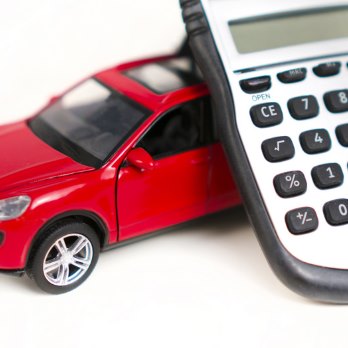Pay Monthly Cars: A Comprehensive Guide to Flexible Vehicle Ownership
In today's fast-paced world, owning a car has become more accessible than ever before. Pay monthly cars, also known as monthly payment vehicles, offer a flexible and affordable way to drive the car you want without the hefty upfront costs. This article will delve into the world of pay monthly cars, exploring how they work, their benefits, and what you need to know before choosing this option.

What are pay monthly cars and how do they work?
Pay monthly cars are vehicles that can be acquired through a financing arrangement where you make regular monthly payments instead of purchasing the car outright. This system typically involves a contract between you and a car dealership or finance company. You’ll agree to pay a fixed monthly amount for a set period, usually ranging from 24 to 60 months. At the end of the term, you may have the option to buy the car, return it, or start a new agreement on a different vehicle.
What types of pay monthly car agreements are available?
There are several types of pay monthly car agreements to choose from:
-
Personal Contract Purchase (PCP): You pay a deposit followed by monthly payments. At the end of the term, you can buy the car for a pre-agreed lump sum, return it, or start a new agreement.
-
Hire Purchase (HP): Similar to PCP, but you automatically own the car after making all the payments.
-
Personal Contract Hire (PCH): Essentially a long-term rental agreement where you never own the car.
-
Lease Purchase: You make monthly payments and commit to buying the car at the end of the term.
Each option has its pros and cons, so it’s essential to consider your long-term goals and financial situation before deciding.
What are the benefits of choosing a pay monthly car?
Opting for a pay monthly car comes with several advantages:
-
Lower initial costs: You can drive a new or nearly new car without a large upfront payment.
-
Fixed monthly budgeting: Regular, predictable payments make budgeting easier.
-
Flexibility: Many agreements allow you to change cars every few years.
-
Access to newer models: You can often afford a higher-spec or newer car than if buying outright.
-
Maintenance packages: Some agreements include servicing and maintenance costs.
Are there any drawbacks to pay monthly car agreements?
While pay monthly cars offer many benefits, there are some potential downsides to consider:
-
Long-term cost: Over time, you may pay more than if you had bought the car outright.
-
Mileage limits: Many agreements have annual mileage restrictions, with penalties for exceeding them.
-
Early termination fees: Ending the agreement early can be costly.
-
Wear and tear charges: You may face additional costs for excessive damage when returning the car.
-
No ownership (in some cases): With PCH agreements, you never own the vehicle.
What should you consider before choosing a pay monthly car?
When considering a pay monthly car, keep these factors in mind:
-
Your budget: Ensure you can comfortably afford the monthly payments.
-
Annual mileage: Be realistic about how many miles you’ll drive each year.
-
Contract length: Consider how long you want to keep the car.
-
Deposit amount: A larger deposit often means lower monthly payments.
-
Interest rates: Compare APRs between different providers.
-
End-of-contract options: Think about what you’ll want to do when the agreement ends.
-
Insurance costs: Factor in the cost of comprehensive insurance, which is usually required.
How do pay monthly cars compare to traditional car buying options?
Pay monthly cars offer a different approach to vehicle ownership compared to traditional methods. Here’s a comparison of some popular options:
| Option | Upfront Cost | Monthly Cost | Ownership | Flexibility |
|---|---|---|---|---|
| Pay Monthly Car (PCP) | Low deposit | Medium | Optional at end | High |
| Outright Purchase | High | None | Immediate | Low |
| Bank Loan | None | High | Immediate | Medium |
| Used Car Finance | Low-Medium | Low-Medium | At end of term | Medium |
Prices, rates, or cost estimates mentioned in this article are based on the latest available information but may change over time. Independent research is advised before making financial decisions.
Pay monthly cars offer a middle ground between the high upfront costs of outright purchase and the potentially higher interest rates of personal loans. They provide greater flexibility in terms of changing vehicles and often allow access to newer models that might otherwise be out of reach.
In conclusion, pay monthly cars present an attractive option for those seeking flexibility and affordability in vehicle ownership. By understanding the different agreement types, weighing the pros and cons, and carefully considering your personal circumstances, you can make an informed decision on whether a pay monthly car is the right choice for you. Remember to thoroughly read and understand any agreement before signing, and don’t hesitate to shop around for the best deals and terms that suit your needs.




